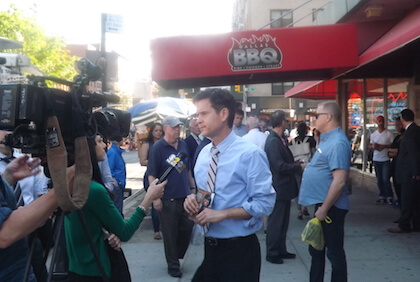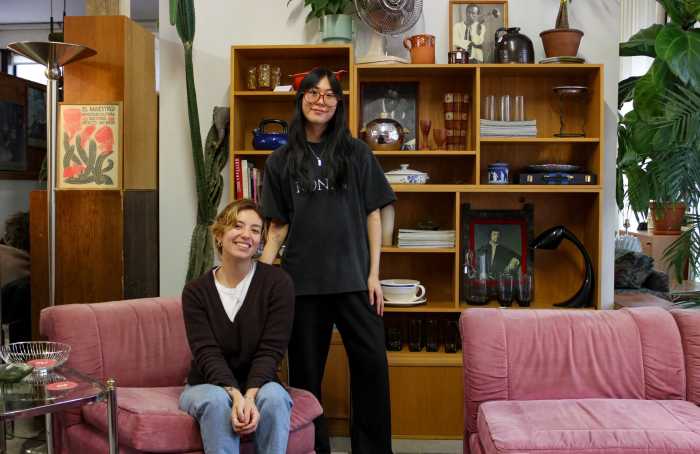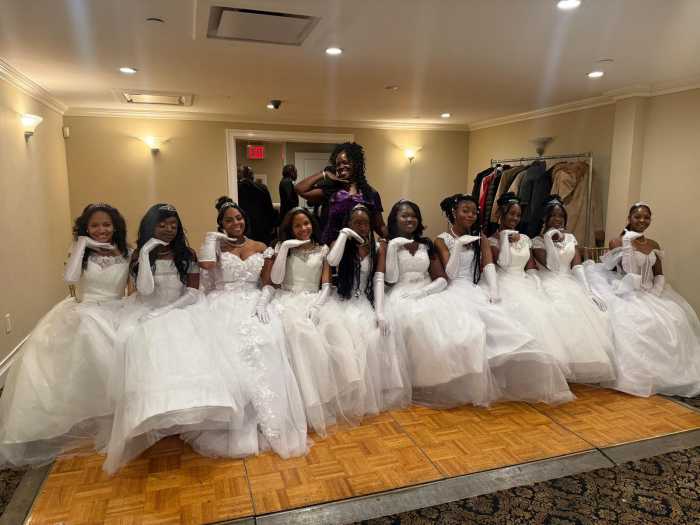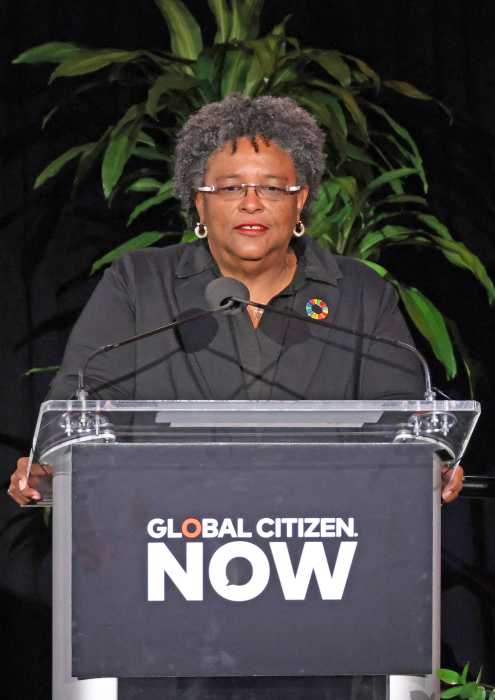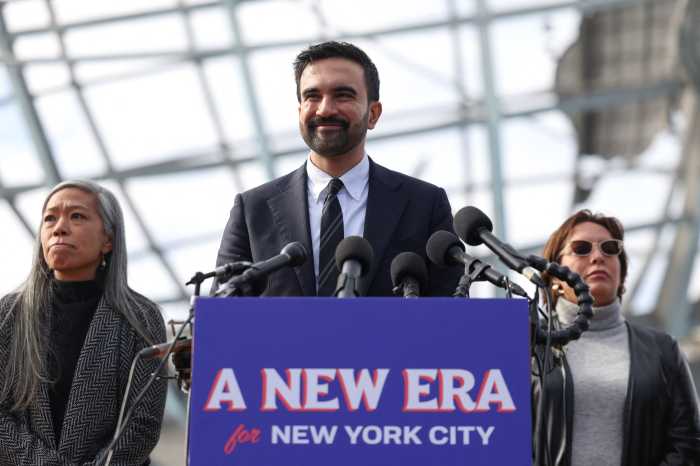Advocates pressed the State Legislature to bar the use of condoms as evidence of prostitution at a June 6 City Hall rally. | DONNA ACETO
BY GERARD FLYNN & PAUL SCHINDLER | New York City has the nation’s largest HIV/ AIDS population, and no responsible public health official would ever advise against carrying condoms. But that’s exactly the decision made by some in the LGBT community as well as the sex industry. They are leaving them behind for fear that if police find condoms in their possession they could face prostitution charges, because of a state law that allows prosecutors to use prophylactics as evidence in court.
Those hoping to remove that disincentive to safe sex practices, however, amped up their visibility in recent weeks — most dramatically when the State Assembly, on the final day of the regular session, approved a bill sponsored by Queens Democratic Assemblywoman Barbara Clark that would bar prosecutors from using such evidence.
“Today’s action by the New York State Assembly brings us one step closer to making history as the first state in the country to enact legislation that prohibits police and prosecutors from confiscating and introducing condoms as evidence of intent to engage in prostitution-related offenses,” said Andrea Ritchie, a member of the No Condoms as Evidence Coalition, which includes more than 70 organizations, in a June 21 release.
Advocates, Council members, some law enforcement officials step up pressure; no Senate action
The bill has not yet been taken up by the State Senate, where it is sponsored by Brooklyn Democrat Velmanette Montgomery, and with the Legislature having ended its regular 2013 session, action there is unlikely until at least 2014.
Opponents of the existing statute, including several district attorneys or their representatives and members of the New York City Council, rallied for change at a June 6 City Hall press conference, demanding passage of the Clark-Montgomery bill.
Council members and state legislators, as well as representatives of legal, human rights, and gay groups, told the rally that discouraging members of the LGBT community and sex workers from carrying condoms promotes the spread of sexually transmitted diseases, including HIV, an ironic, even “schizophrenic” twist since the city runs a campaign promoting condom use to prevent the spread of STDs and to stop unwanted pregnancies.
Existing law, advocates said, particularly targets members of the transgender community.
Johanna Vasquez, who is transgender, told the crowd of roughly 40 about being stopped by police several years ago as she walked along Roosevelt Avenue in Queens. Despite pleading her innocence, the discovery of a single condom in her possession landed her in jail for a year, she said, due in part to her immigration status.
A Human Rights Watch report released last July documented in alarming language how sex workers and others, particularly transgender women, face arrest for possession of condoms. The arrests involve “degrading treatment and abuse at the hands of the police,” the report asserted. “For immigrants, arrest for prostitution offenses can mean detention and removal from the United States.”
Socheatta Meng, legislative counsel at the New York Civil Liberties Union, called the pending legislation a matter of good public health policy and common sense and said it would encourage all New Yorkers, especially individuals stopped repeatedly by the police, to use condoms.
Jim Vogel, a Senate aide to Montgomery, voiced optimism the measure would eventually triumph, despite the fact that since 1999, it has repeatedly “died in committee,” according to the Senate website.
That record isn’t deterring some members of the City Council — including Stephen Levin of Brooklyn, Jessica Lappin of Manhttan, and Jimmy Van Bramer and Daniel Dromm of Queens — who are pushing for a resolution in support of the bill.
The law needs to change, Levin said, so “we can treat everyone fairly and with dignity.”
Some prosecutors, including Brooklyn District Attorney Charles Hynes, have taken action to stop the use of condoms as evidence in criminal and civil trials. His Nassau County counterpart, Kathleen Rice, told the press conference about her office’s comprehensive policy banning the use of condoms as evidence in any prostitution-related cases, including trafficking cases. (Her office’s recent publication of pictures of more than 100 men arrested for soliciting sex, in a campaign dubbed “Operation Flush the Johns,” however, has raised eyebrows among civil liberties advocates.)
Not all local district attorneys share the position taken by Hynes and Rice. Queens District Attorney Richard A. Brown released a statement to Gay City News asserting that though prostitution cases rarely go to trial in that borough, “condom evidence can be very useful in other prostitution-related offenses, such as closing down brothels and holding pimps and sex traffickers accountable.”
Council Speaker Christine Quinn, though not present at the June 6 press conference, wants the law changed.
“No person anywhere should have to refrain from carrying condoms for fear of arrest or prosecution,” she said in a written statement. “Condoms are life-saving devices and should not be used as evidence.” Condom use, she continued, “should be encouraged — never discouraged. Although we have made advances in the fight against HIV/ AIDS, the disease continues its devastating toll on our communities.”




